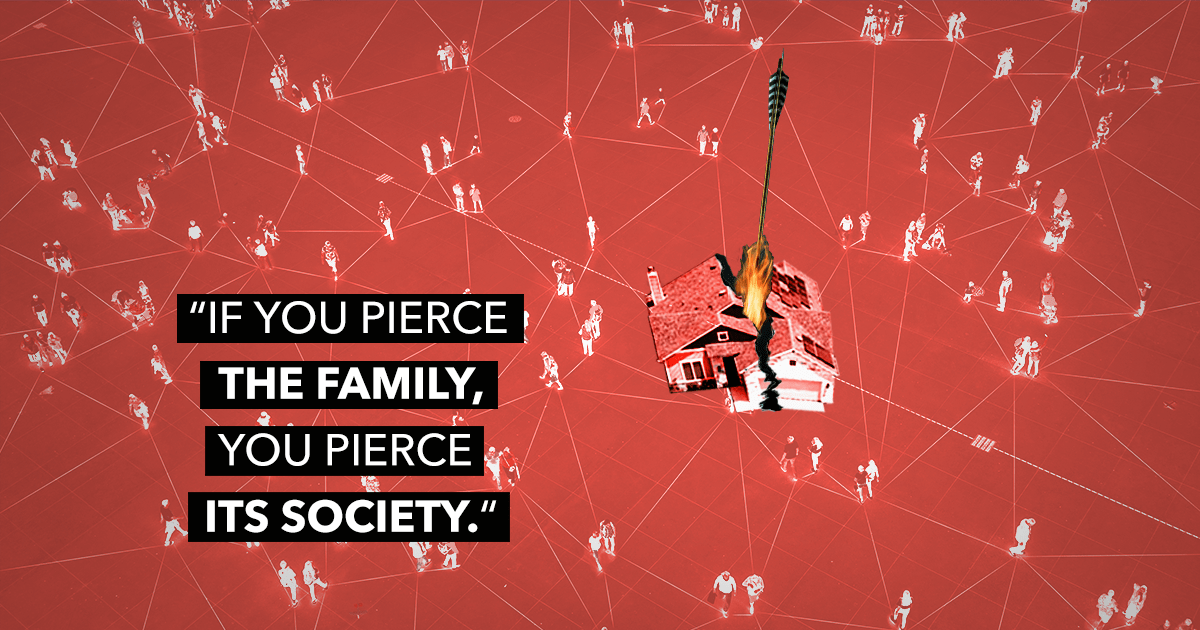How do you know if you're ready to remarry after a divorce or loss of a spouse? In today's post, author Susan G. Mathis (along with her late husband, Dale) share important red flags and potential hazards to watch out for in your relationship, before you consider marrying again. Also, in case you missed it, here is Part 1 of Are You Ready to Remarry?
Are you looking to get remarried? Before you spend the rest of your life with someone special, take time to prepare.
All too often, people looking to remarry can get caught up in the thrill of a new and exciting relationship and unintentionally forget to look deeper.
After years of counseling and mentoring couples of all ages and backgrounds, we've found a number of traits that can be possible danger signs in a relationship leading to a remarriage. Let's call them "red flags."
If any of these obstacles are present in your life or your future mate's, consider that there may be significant risks in moving ahead until you find a resolution.
As you read these potential alerts, think and pray about your next steps, trusting God for His wisdom.
1. On the rebound. If you or your future spouse have been single again for less than two years, or if you have not intentionally worked through the loss of your previous marriage, this is a red flag. Time does heal, not all wounds, but many. But if you hop from one relationship to the next, without taking time to heal and resolve past heartache, you'll take that unhealed pain into your future relationships.
2. A godless relationship. Before getting married to an unbeliever, remember that Scripture says not to be "unequally yoked" (See 2 Corinthians 6:14-18). Having major differences in your spiritual beliefs is not a small matter, especially when children are involved. Plus, a lack of spiritual leadership in the home will only bring frustration and conflict. Be sure you are equally yoked, "teamed up" with someone who shares the same morals and spiritual values.
3. Addiction. One of the biggest danger signs in a relationship is an addiction to drugs, alcohol, pornography, or gambling, just to name a few. He or she may need professional help to resolve it before you marry. If any of these are present, stop! Don't deny that it will become a problem for your marriage. People with addictions are either running to (or from) something, and you need to know before committing your life to that person. It's often best to seek professional help for dealing with an addiction.
4. Abuse. Is there verbal, sexual, physical, or emotional abuse in either of your backgrounds? In your children's backgrounds? Discuss this thoroughly, and, if needed, seek professional counsel to find healing and resolution before you marry. If left unresolved, abuse and its horrible consequences will crop up sooner or later.
5. Emotional instability. Dealing with a divorce or death can wreak havoc on a person's emotions and self-esteem. Unless both of you have gone through the stages of grief and are emotionally healthy, you'll likely encounter major challenges in your relationship at some point. You need to be emotionally ready to marry and for the right reasons. Have both of you stabilized emotionally and found peace with your past? If not, you may need additional healing to work through the process.
6. Codependence. Moving from being married to single again can be even more challenging than what is typical for some people. If you don't know how to find contentment in your singleness or individuality, it can lead to becoming codependent—too reliant on others to make you happy. Are you comfortable being an independent single adult, or are you counting on marriage to solve your issues of loneliness, fear, shame, or other challenges? Do you have a healthy relationship with your children, or are you overly dependent upon them for your self-worth, self-esteem, or value? Our worth comes from who we are in Christ.
7. Sex before marriage. God's Word, the Bible, talks about sex with only your husband or wife. The same applies to a remarriage—to wait until you are wed. Once a couple becomes sexually active, the relationship takes on a distorted dynamic, and real intimacy may never develop. Priorities, motivations, and your perspective of that person will be different, and long-term trust issues may eventually haunt one or both of you. Some may feel obligated to marry out of a sense of guilt. But if boundaries have been crossed, all is not lost. Ask God for forgiveness, ask forgiveness of each other, and choose to remain pure until your wedding night. Repentance reaps great rewards.
8. Financial irresponsibility. More than half of all divorces are caused by the stress of financial problems. The Lord asks us to be good stewards of our resources and our finances, so watch out for money mismanagement. If he's constantly trying to impress you by spending more than he has, or if she's buying the latest fashions even though she can't afford them, he or she may be financially irresponsible. How does he or she deal with finances when it comes to the children? Financial irresponsibility should be a danger sign not to ignore.
9. A critical person. Is your partner critical of you or people in general—always finding faults and pointing them out, or judging and putting down others? The wounds of a death or a divorce can cause a person to become cynical, and being overly critical can be a sign of his or her insecurities. If the other person only sees the bad things, and attacks a person instead of addressing the behavior alone, you may have a big problem later on, especially with children involved. Constructive or gentle correction is one thing, but being around a negative, nitpicker is asking for a life of hurt, frustration, and disappointment.
10. Incompatibility. How different are your parenting styles, philosophies of step-parenting, backgrounds, lifestyles, values, educational levels, interests, etc.? If there is a great disparity in any of the above, it may cause problems later on if not worked out before marriage. Of course, no couple is like-minded on every single topic. But make sure you are compatible in the areas that are important to you.
11. Personal habits. Consider habits that may bother you, especially those that are diametrically opposed to your tastes, values, and desires (like smoking, drinking, bad table manners, sloppiness, poor hygiene, or even incessant gum chewing). These may be ignored now, but could become a problem later. Anything from pet peeves to serious parenting or personality problems need to be addressed if they are things that you can't live with.
12. Don't forget the kids. Even though we're focusing on marriage, children will dramatically affect your relationship, especially if they are against your marriage. Be sure your children are mentally and emotionally ready to accept your remarriage—and a stepparent—into their lives. If they aren't, seek the help of a pastor or other professional before proceeding with your marriage.
Are your kids ready to become a blended family?
Kids may seem resilient, but after a death or divorce of their parents, children have been hurt as well, but in a different way. Some children dream of getting their parents back together again, and they may see a new marriage as a threat.
Children may even try to sabotage your relationship, or they simply may not understand how a remarriage will change their family for the rest of their lives.
Do your children seem emotionally stable and able to laugh and love without a cloud of sadness, bitterness, or depression hanging over them? Have they had enough time with your future spouse to feel comfortable and safe with him or her? Do they have enough age-appropriate autonomy that they are not insecure and overly dependent upon you?
If these are true, they may be ready to accept your remarriage and blend as a family.
On the other hand, if your children are acting out, or if you see signs of depression, anger, bitterness, or other negative emotions, it will affect your remarriage and your blended family if you don't deal with it now. He or she may simply need time to heal before you proceed with your second marriage.
Choose Wisely
Establishing a healthy second marriage and blending a family has its own unique challenges. It can also be a positively wonderful thing.
As you consider these 12 red flags, remember that no one is faultless. We all have bad habits and weaknesses. Be open and honest, with yourself and with your boyfriend or girlfriend about what you need—and what they need—in your relationship. What can you live with? What can't you live without?
Discuss. Evaluate. And pray. As you proceed, ask God for wisdom every step of the way.
Are you looking to get remarried? Before you spend the rest of your life with someone special, take time to prepare.
All too often, people looking to remarry can get caught up in the thrill of a new and exciting relationship and unintentionally forget to look deeper.
After years of counseling and mentoring couples of all ages and backgrounds, we've found a number of traits that can be possible danger signs in a relationship leading to a remarriage. Let's call them "red flags."
If any of these obstacles are present in your life or your future mate's, consider that there may be significant risks in moving ahead until you find a resolution.
As you read these potential alerts, think and pray about your next steps, trusting God for His wisdom.
1. On the rebound. If you or your future spouse have been single again for less than two years, or if you have not intentionally worked through the loss of your previous marriage, this is a red flag. Time does heal, not all wounds, but many. But if you hop from one relationship to the next, without taking time to heal and resolve past heartache, you'll take that unhealed pain into your future relationships.
2. A godless relationship. Before getting married to an unbeliever, remember that Scripture says not to be "unequally yoked" (See 2 Corinthians 6:14-18). Having major differences in your spiritual beliefs is not a small matter, especially when children are involved. Plus, a lack of spiritual leadership in the home will only bring frustration and conflict. Be sure you are equally yoked, "teamed up" with someone who shares the same morals and spiritual values.
3. Addiction. One of the biggest danger signs in a relationship is an addiction to drugs, alcohol, pornography, or gambling, just to name a few. He or she may need professional help to resolve it before you marry. If any of these are present, stop! Don't deny that it will become a problem for your marriage. People with addictions are either running to (or from) something, and you need to know before committing your life to that person. It's often best to seek professional help for dealing with an addiction.
4. Abuse. Is there verbal, sexual, physical, or emotional abuse in either of your backgrounds? In your children's backgrounds? Discuss this thoroughly, and, if needed, seek professional counsel to find healing and resolution before you marry. If left unresolved, abuse and its horrible consequences will crop up sooner or later.
5. Emotional instability. Dealing with a divorce or death can wreak havoc on a person's emotions and self-esteem. Unless both of you have gone through the stages of grief and are emotionally healthy, you'll likely encounter major challenges in your relationship at some point. You need to be emotionally ready to marry and for the right reasons. Have both of you stabilized emotionally and found peace with your past? If not, you may need additional healing to work through the process.
6. Codependence. Moving from being married to single again can be even more challenging than what is typical for some people. If you don't know how to find contentment in your singleness or individuality, it can lead to becoming codependent—too reliant on others to make you happy. Are you comfortable being an independent single adult, or are you counting on marriage to solve your issues of loneliness, fear, shame, or other challenges? Do you have a healthy relationship with your children, or are you overly dependent upon them for your self-worth, self-esteem, or value? Our worth comes from who we are in Christ.
7. Sex before marriage. God's Word, the Bible, talks about sex with only your husband or wife. The same applies to a remarriage—to wait until you are wed. Once a couple becomes sexually active, the relationship takes on a distorted dynamic, and real intimacy may never develop. Priorities, motivations, and your perspective of that person will be different, and long-term trust issues may eventually haunt one or both of you. Some may feel obligated to marry out of a sense of guilt. But if boundaries have been crossed, all is not lost. Ask God for forgiveness, ask forgiveness of each other, and choose to remain pure until your wedding night. Repentance reaps great rewards.
8. Financial irresponsibility. More than half of all divorces are caused by the stress of financial problems. The Lord asks us to be good stewards of our resources and our finances, so watch out for money mismanagement. If he's constantly trying to impress you by spending more than he has, or if she's buying the latest fashions even though she can't afford them, he or she may be financially irresponsible. How does he or she deal with finances when it comes to the children? Financial irresponsibility should be a danger sign not to ignore.
9. A critical person. Is your partner critical of you or people in general—always finding faults and pointing them out, or judging and putting down others? The wounds of a death or a divorce can cause a person to become cynical, and being overly critical can be a sign of his or her insecurities. If the other person only sees the bad things, and attacks a person instead of addressing the behavior alone, you may have a big problem later on, especially with children involved. Constructive or gentle correction is one thing, but being around a negative, nitpicker is asking for a life of hurt, frustration, and disappointment.
10. Incompatibility. How different are your parenting styles, philosophies of step-parenting, backgrounds, lifestyles, values, educational levels, interests, etc.? If there is a great disparity in any of the above, it may cause problems later on if not worked out before marriage. Of course, no couple is like-minded on every single topic. But make sure you are compatible in the areas that are important to you.
11. Personal habits. Consider habits that may bother you, especially those that are diametrically opposed to your tastes, values, and desires (like smoking, drinking, bad table manners, sloppiness, poor hygiene, or even incessant gum chewing). These may be ignored now, but could become a problem later. Anything from pet peeves to serious parenting or personality problems need to be addressed if they are things that you can't live with.
12. Don't forget the kids. Even though we're focusing on marriage, children will dramatically affect your relationship, especially if they are against your marriage. Be sure your children are mentally and emotionally ready to accept your remarriage—and a stepparent—into their lives. If they aren't, seek the help of a pastor or other professional before proceeding with your marriage.
Are your kids ready to become a blended family?
Kids may seem resilient, but after a death or divorce of their parents, children have been hurt as well, but in a different way. Some children dream of getting their parents back together again, and they may see a new marriage as a threat.
Children may even try to sabotage your relationship, or they simply may not understand how a remarriage will change their family for the rest of their lives.
Do your children seem emotionally stable and able to laugh and love without a cloud of sadness, bitterness, or depression hanging over them? Have they had enough time with your future spouse to feel comfortable and safe with him or her? Do they have enough age-appropriate autonomy that they are not insecure and overly dependent upon you?
If these are true, they may be ready to accept your remarriage and blend as a family.
On the other hand, if your children are acting out, or if you see signs of depression, anger, bitterness, or other negative emotions, it will affect your remarriage and your blended family if you don't deal with it now. He or she may simply need time to heal before you proceed with your second marriage.
Choose Wisely
Establishing a healthy second marriage and blending a family has its own unique challenges. It can also be a positively wonderful thing.
As you consider these 12 red flags, remember that no one is faultless. We all have bad habits and weaknesses. Be open and honest, with yourself and with your boyfriend or girlfriend about what you need—and what they need—in your relationship. What can you live with? What can't you live without?
Discuss. Evaluate. And pray. As you proceed, ask God for wisdom every step of the way.
Susan G. Mathis is an international award-winning, multi-published author. Her nonfiction books include Countdown for Couples: Preparing for the Adventure of Marriage and The ReMarriage Adventure: Preparing for a Life of Love and Happiness (which she wrote with her late husband Dale). Susan has also published more than a dozen fiction books and several hundred magazine and newsletter articles. Connect with Susan at SusanGMathis.com.












